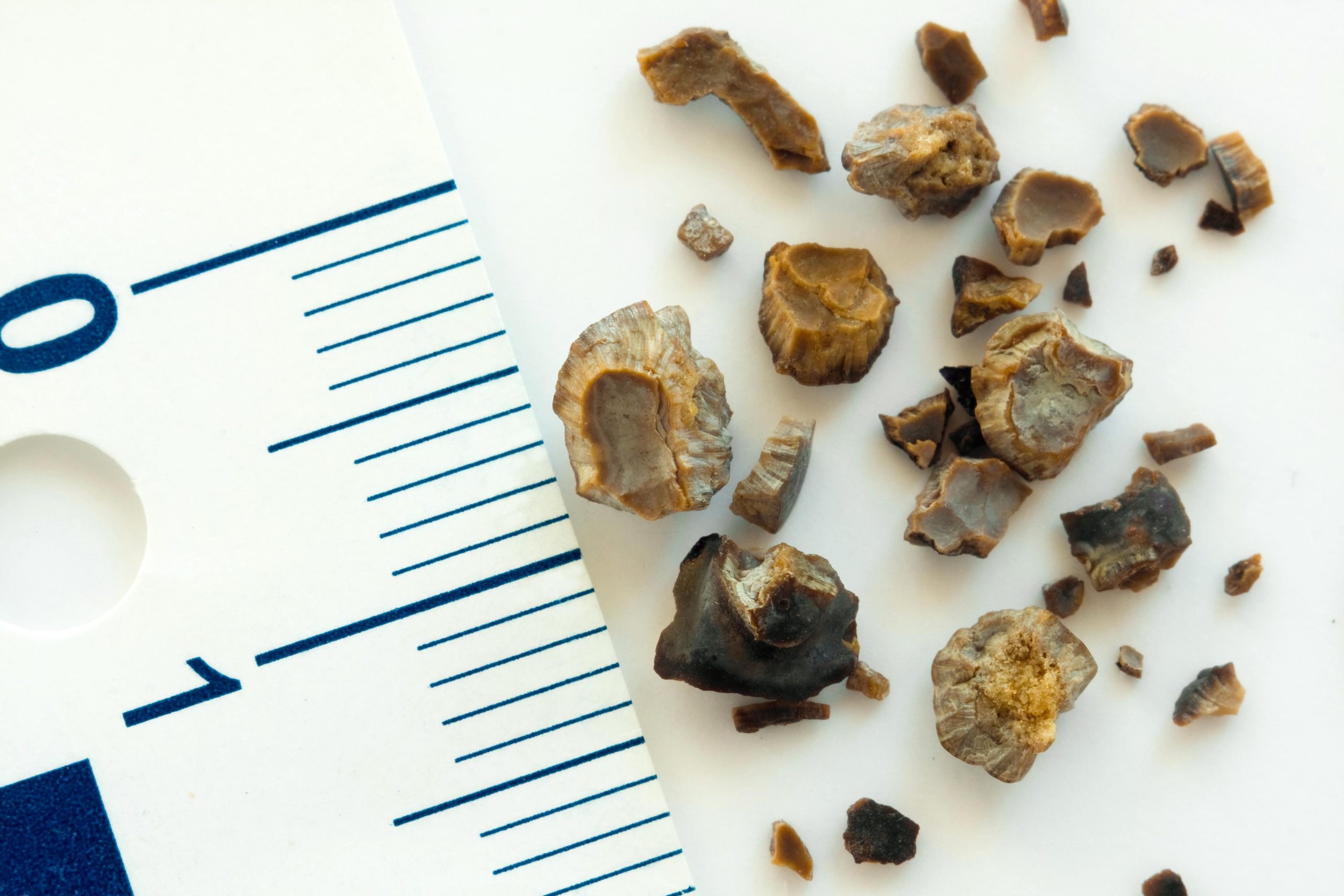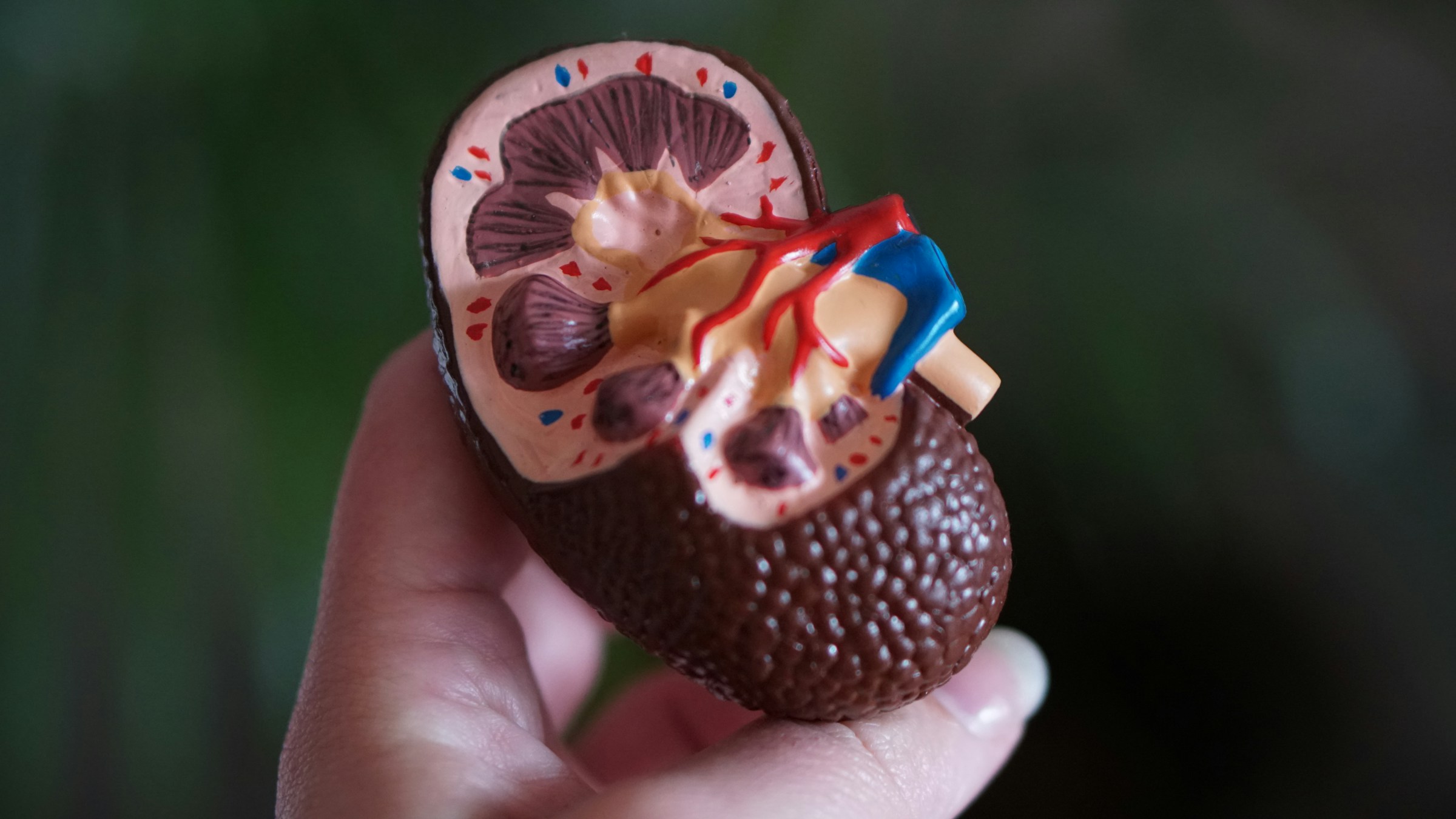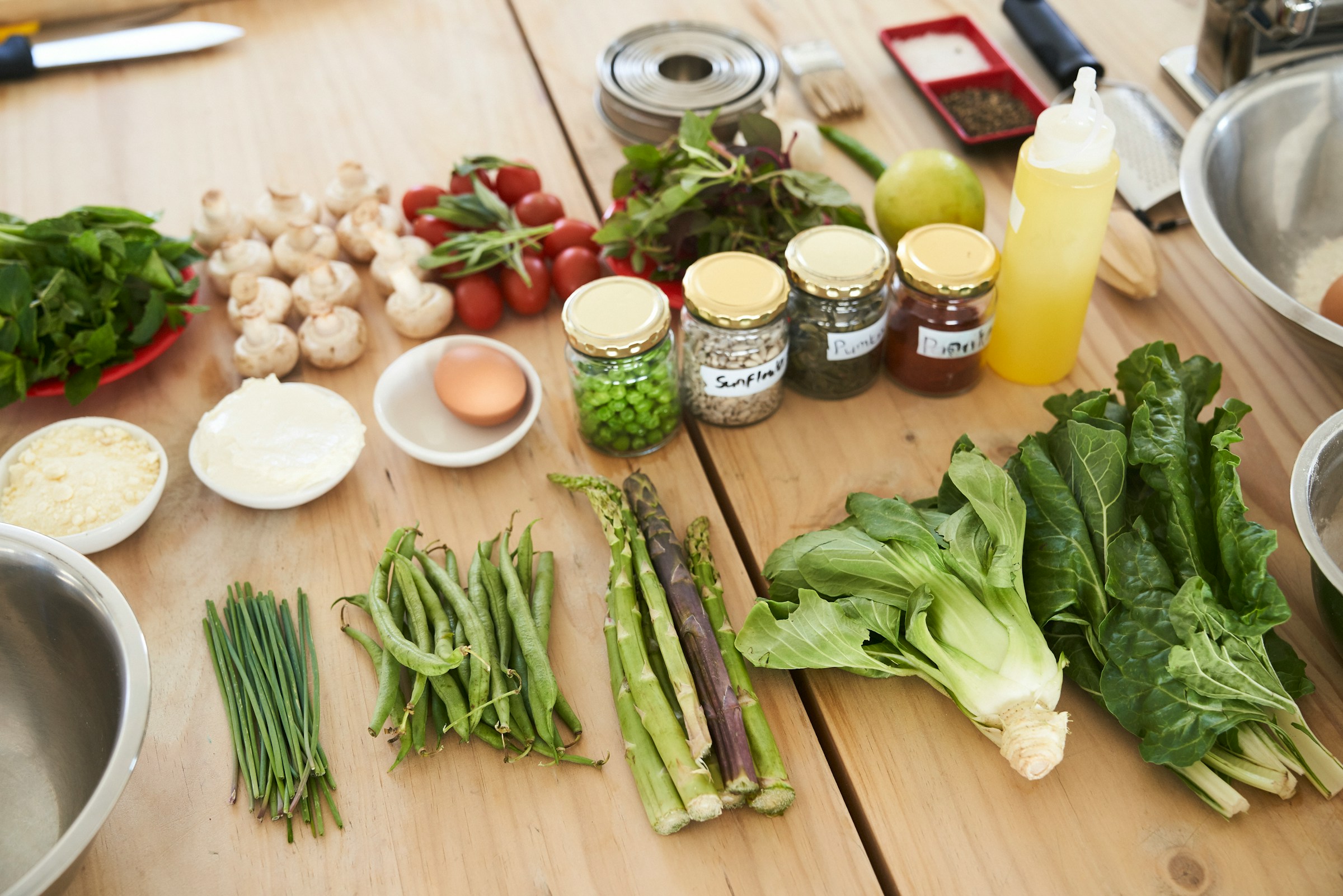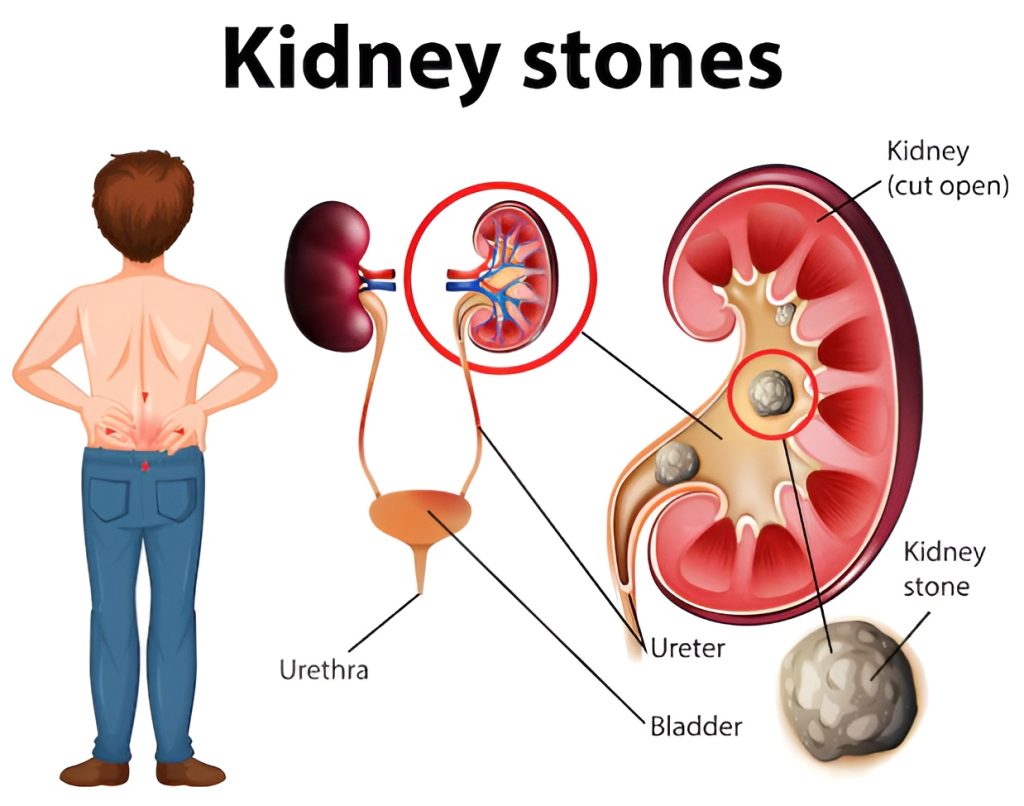Kidney stones are a painful and common health issue affecting many people worldwide. Understanding how to prevent them can save you from the excruciating pain they cause. Here’s a guide to help you understand what kidney stones are, the different types, and how simple changes in diet and lifestyle can significantly reduce your risk of developing them.
What are kidney stones?
Contents
A kidney stone is a hard mass formed from crystals that separate from the urine and build up on the inner surfaces of the kidneys. While many people naturally have chemicals in their urine that prevent stones from forming, some may still develop kidney stones due to various factors.
Types of kidney stones
Not all kidney stones are the same. The most common types are:
- Calcium oxalate stones: These are the most common and form when calcium combines with oxalate in the urine.
- Uric acid stones: These form when the urine is too acidic.

Understanding kidney stone formation
Kidney stones can start as small as a grain of sand and grow to fill the inside of the kidney. The larger they are, the harder they are to pass. They can block urine flow, causing pain that some people compare to childbirth.
Statistics and risks
The incidence of kidney stones has risen from about 4% in the 1970s to 10% today. Certain countries such as those in the South East Asian region, have higher incidence rates due to warm weather and increased risk of dehydration. Once you’ve had a stone, there’s a 50% chance you’ll have another within 15 years.
First warning signs or symptoms of kidney stones
Kidney stones form in your kidneys. As stones move into your ureters – the thin tubes that allow urine to pass from your kidneys to your bladder – signs and symptoms can result. Signs and symptoms of kidney stones can include severe pain especially in the back, nausea, vomiting, fever, chills and blood in your urine.

Key prevention tips
- Stay hydrated Drinking plenty of water is the most effective way to prevent kidney stones. Aim for at least 2-3 quarts (8-12 cups) of liquid daily. Water dilutes the substances in urine that lead to stones, making it less likely for them to form.
- Watch your sweat: Activities like hot yoga, heavy exercise, or spending time in saunas can increase sweating, leading to less urine production. Less urine means a higher concentration of stone-forming minerals in the kidneys.
- Limit sodium intake: High sodium levels can increase calcium in your urine, contributing to stone formation. Reduce your intake of processed foods and opt for fresh, low-sodium options to help lower your risk.
- Eat calcium-rich foods: Contrary to popular belief, calcium is not the enemy. Consuming calcium-rich foods like milk, yoghurt, and cheese can help prevent stones by binding to oxalate in the intestines and preventing it from reaching the kidneys. However, avoid calcium supplements unless advised by a doctor.
- Reduce oxalate-rich foods: Foods high in oxalate, such as spinach, beets, nuts, and chocolate, can contribute to calcium oxalate stones. Pairing these foods with calcium-rich foods during meals can reduce the risk.
- Cut back on animal protein: Reducing the intake of red meat, organ meats, and shellfish can help prevent uric acid stones. These foods increase uric acid levels, making it easier for stones to form. Instead, opt for a diet rich in vegetables, fruits, whole grains, and low-fat dairy.
- Limit sugary and alcoholic beverages: Sugary drinks, especially those with high fructose corn syrup, can increase the risk of stones. Alcohol can raise uric acid levels, leading to uric acid stones. Moderation is key.
Dietary changes to prevent kidney stones
Hydrate with citrate-rich drinks: Drinks like lemonade, limeade, and orange juice contain citrate, which helps prevent stone formation by binding with calcium.
Eat fruits and vegetables: A diet rich in fruits and vegetables can increase urinary citrate, reducing the risk of stones. Aim for at least five servings a day.
Be cautious with vitamin C supplements: High doses of vitamin C supplements can increase the risk of kidney stones. It’s better to get your vitamin C from food sources.
Balance your diet: Rather than eliminating high-oxalate foods, balance them with calcium-rich foods and drink extra water.

Medical help and treatments
If you develop a kidney stone, a healthcare professional can determine its size and type through tests like X-rays or ultrasounds. Small stones can often pass on their own, but larger stones may require medical procedures such as:
- Ureteroscopy with Laser Lithotripsy: Breaking up stones with a laser.
- Percutaneous Nephrolithotomy: Removing stones through a small incision in the back.
Kidney stones can be prevented with simple changes in diet and lifestyle. By staying hydrated, balancing your intake of calcium and oxalate, reducing sodium and animal protein, and moderating sugary and alcoholic drinks, you can significantly lower your risk. Always consult with a healthcare professional for personalised advice.
If you think you have kidney stones and need proper treatment in Thailand, you can search for medical providers on the ASEANNOW Business Directory – here, you’ll find many hospitals and clinics ready to help you.

